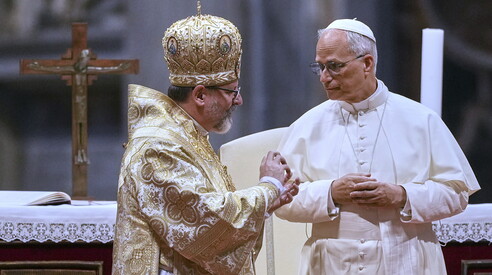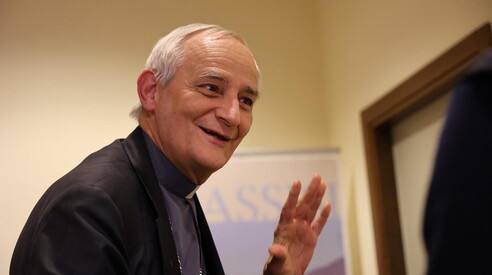
A Christian worshipper leaves a Sunday mass at the Xishiku Catholic Cathedral in Beijing (Kevin Frayer/Getty Images)
The Mandarin Variable
China chooses bishops and fires a missile at the Conclave
The Party appoints two prelates while the See is vacant in Rome. A big problem for Cardinal Parolin. Agreements that do not hold up
The secret and provisional agreement (but renewed several times from 2018) with the People's Republic of China on the appointment of bishops has already entered into the general pre-conclave discussions. All the more reason to talk about it now, because while the cardinals in Rome are preparing to elect the new Pope, on the other side of the world the Party is seizing the opportunity to appoint two bishops: one as an auxiliary in Shanghai, the other in Henan province. Asia News reports the news, adding that the procedure was carried out - once again - in total violation of the agreement signed between Beijing and Rome. The method is always the same: assemblies of well-chosen priests, religious and laity are convened to ratify decisions handed down from above. And it is always about approving the only name proposed. Take it or leave it. Of course, the vote is a plebiscite, with a few scattered votes against. Once the name is approved, it is presented to the Holy See and the Pope must decide whether or not to accept the choice. Not exactly the ultimate expression of freedom and power. Both nominations are problematic.
Translated with DeepL.com
The first concerns the diocese of Shanghai, where in 2023 Rome was informed that Mgr Shen Bin had been appointed bishop, forcing the Pope to give his approval (which came in the summer of that year) under threat of much greater problems. The fact is that there are already two auxiliary bishops in Shanghai, including Mgr Thaddeus Ma Daqin, who was forced to stay away from the Sheshan seminary after he dared to resign from the Patriotic Association in 2012. He apologised four years later, but nothing has changed for him since. He should no longer be allowed to move freely. AsiaNews points out that the other appointment, in Henan, also raises serious problems: the chosen one is one of the signatories of the circular forbidding minors to enter the church to attend mass. This is Beijing's gift to the next Pope: what will he do? Will he accept what has been decided by the Party and ratified by the local assemblies, or will he send it back to the sender, risking a serious blow to the secret agreement? Certainly, this move will not have pleased Cardinal Pietro Parolin, the Secretary of State, the great theoretician of the rapprochement with China and the architect of the Agreement, about which he has publicly expressed some perplexity over the years, but which he has always supported with conviction. A certain eminence, especially among those who have never seen eye to eye with Xi.





